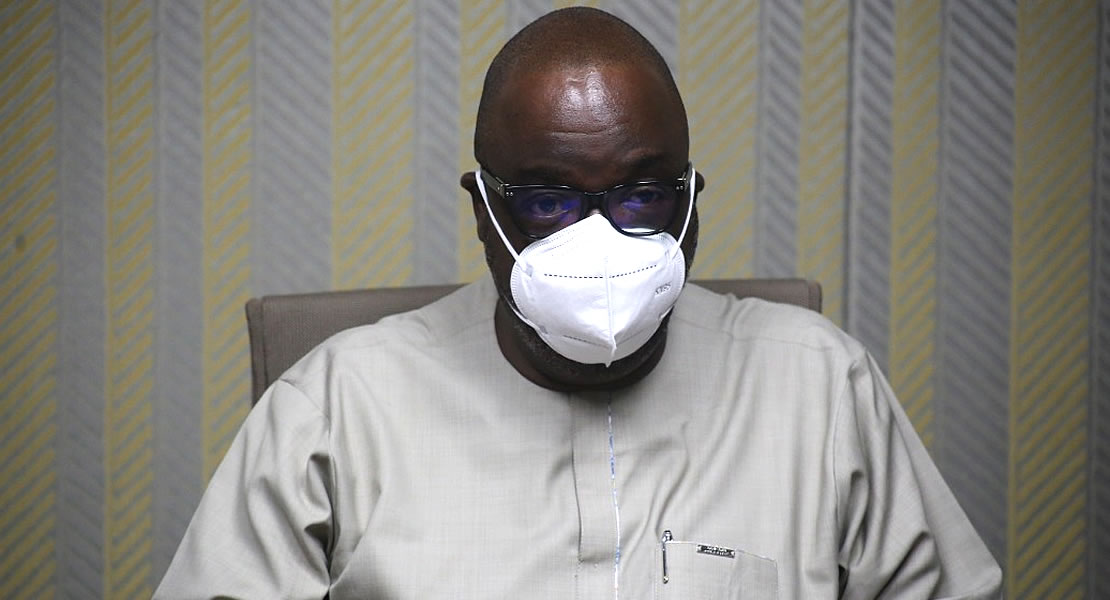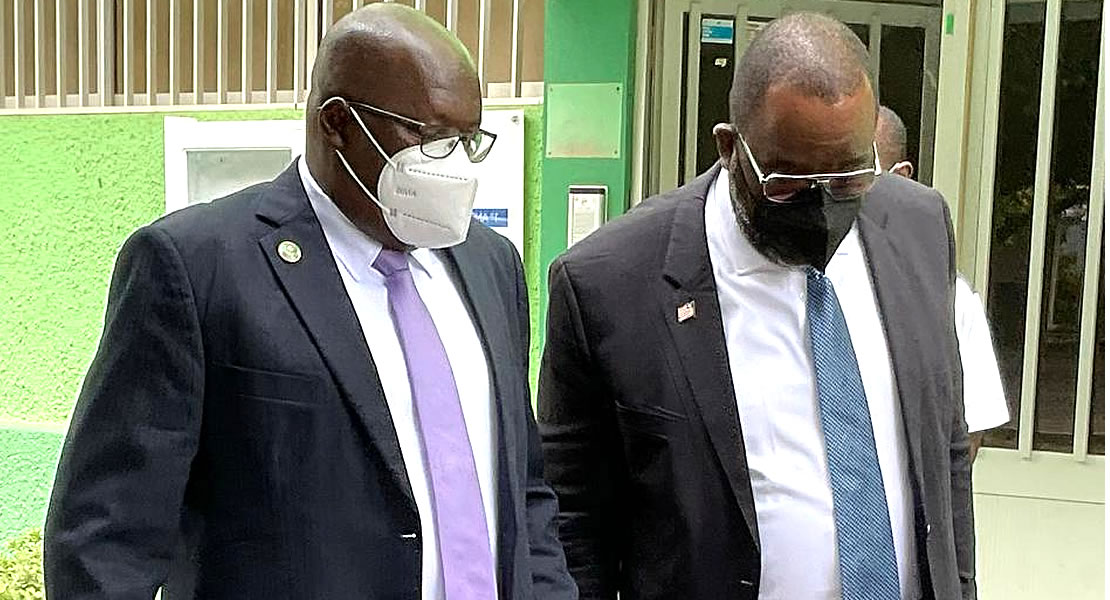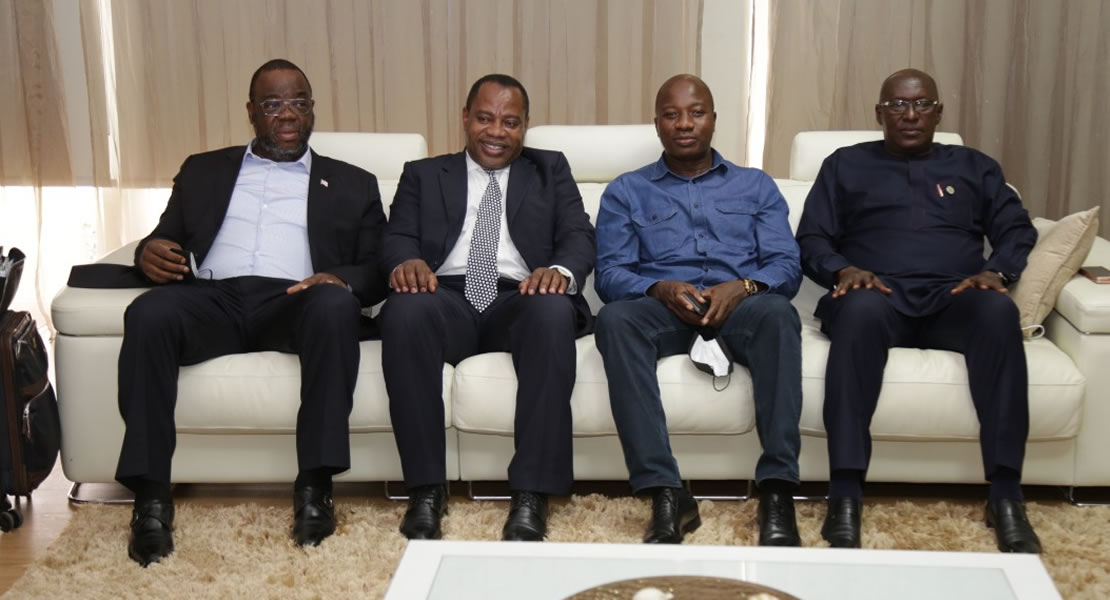
Chairman of the Committee on Political Affairs, Peace, Security and African Peer-Review Mechanism (APRM) of ECOWAS Parliament, Senator Edwin Melvin Snowe Jr., said fact-finding missions of the parliament can be debated on at plenary and a resolution taken, then sent to the Commission for onwards submission to Authority of Heads of States.
According to him, an understanding of the relevant provisions of the Supplementary Act is therefore supported both by practice (regular consideration of the regional political and security situation, fact-finding mission, conflict mediation, among others) and by the provision of Article 41 Paragraph (2) of the Supplementary Act which states that.
Chapter V special provisions, “in exceptional circumstances and in conformity with Community objectives, the Parliament may by Resolution request the President to activate the mechanism for conflict Prevention, Management, Resolution, Peacekeeping and Security”.
In a statement, he noted that, having read a news article published by the online news outlet, Ghanamp.com, under the caption, “Peace and Security not included in ECOWAS Parliament’s enhanced powers”, I feel obliged to issue this rebuttal as Chair of the Committee on Political Affairs, Peace, Security and African Peer- Review Mechanism of the ECOWAS Parliament.

The ECOWAS Parliament was established under Article 6 and 13 of the ECOWAS Revised Treaty of 1993. The Protocol relating to the Parliament was signed in Abuja on 6 August 1994 and entered into force on 14 March 2002. It provides for the structure, composition, competences, and other matters relating to the Parliament. In December 2016, the Supplementary Act relating to the Enhancement of Powers of the ECOWAS Parliament was adopted. This further strengthens the operations of the Parliament, including its objectives and competences.
Article 4 of the Supplementary Act spells out the objectives for which the Parliament was established. Article 4 Paragraph (a) charges the Parliament to contribute to the efficient and effective implementation of the objectives and policies of the Community. That confers upon the Parliament the moral obligation to contribute to and support the Community Strategic Framework and the ECOWAS Vision, of which peace and security is a key component.
Specifically, Article 4 Paragraph (d) states that the Parliament was established to contribute to the promotion of peace, security, and stability in the West African region. It states further, in Article 4 Paragraph (e), that the Parliament would promote and defend the principles of human rights, democracy, the rule of law, transparency, accountability and good governance. With these clearly laid out objectives, one cannot divorce regional peace and security from the powers of the Parliament.
Furthermore, Article 7(d) states that “Parliament may consider any matter concerning the Community, in particular issues relating to Human Right and Fundamental Freedoms and make recommendations to the institutions and organs of the Community. In this regard, it may constitute committees of enquiry and may mediate on the matter. In this case, peace and security are fundamental human rights to which all citizens of the Community are entitled. As such, the Parliament reserves the right, by virtue of this Act, to conduct enquires, fact-finding, and mediation missions when required.

Relating to referrals to the Parliament, there are mandatory and non-mandatory referrals. Peace and Security matters are not among the areas for mandatory referrals as cited in Article 9 of the Supplementary Act. However, Community defense, peace, and security policies are expressly cited as non-mandatory referrals in Article 10 Paragraph (d), which means the option of referring such matters to Parliament or Parliament being involved is still opened.
Moreover, Article 25 Paragraph (D) provides that the Parliament, in order to facilitate its work, may establish Standing Committees. The modalities of the organization and mandate of the Standing Committees shall be provided in the rules of procedures of Parliament. The Parliament, in its Rules of Procedures, established the Committee on Political Affairs, Peace, Security, and African Peer Review Mechanism. It provides that this Committee shall be responsible for matters relating to:
- Regional peace, stability and security by seeking to promote and strengthen good neighborliness;
- Follow up on the status of implementation of Community Texts on peace, security, democracy, and good governance.
- Promotion and consolidation of a democratic system of governance in each Member State as envisaged by ECOWAS declaration of Political Principles adopted in Abuja on 6 July 1991;
- Assisting in parliamentary mediation missions aimed at achieving peaceful resolution of disputes among Member States, cooperation between neighboring States and promotion of peace, a catalyst of economic development.
- Strengthening cooperation in the area of conflict prevention, early warning, peacekeeping operations, control of cross-border crime; international terrorism, proliferation of small arms and anti-personnel mines.
Contextualizing the above, it’s no gainsaying that the Parliament, through this Committee, must, as a matter of fundamental responsibility, work to ensure that the Community is peaceful and secure.
Evidently, the ECOWAS Parliament, based upon these legal provisions, has established for itself an enviable record of peace keeping and mediation. Parliament, as a matter of parliamentary diplomacy, was involved in the search for peace in the Mano River Union (MRU), where Guinea, Sierra Leone and Liberia had fragile peace. Parliament also initiated peace talks between the Liberians United Reconciliation and Democracy (LURD) rebels and the Liberian Government, mediated the 2018 conflict in the Sierra Leonean Parliament, and many others. Parliament also regularly conducts Fact- Finding Missions prior to elections and ensure its observers are on ground to observe elections across the region.
Notwithstanding these achievements, we are fully aware and agree that the direct elections of members into the Parliament will confer new competences on the Parliament and would transform the Parliament into a truly independent and democratic body, and all efforts are being directed towards achieving that. While we work towards the realization of this democratic legacy, we take pride in the work we do to, as a Parliament, to keep our region peaceful and secure.
Kwaku Sakyi-Danso/Ghanamps.com